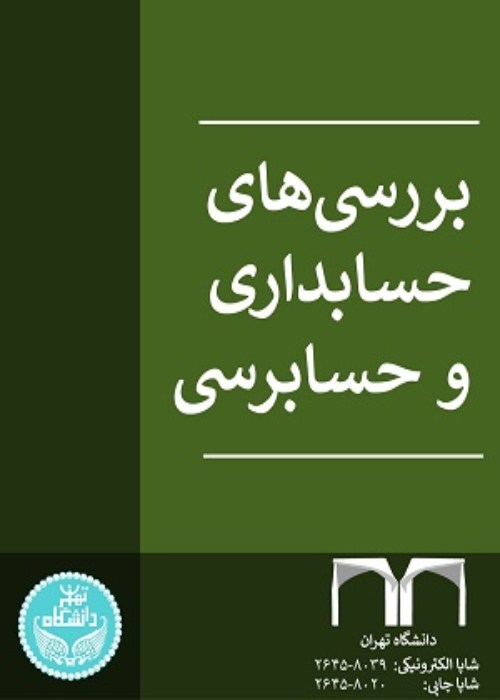Technical Challenges of Implementing Fair Values in Financial Reporting of Iran: Emphasizing on IFRS13 Requirements
By the full adoption of IFRS, measurement and disclosure of fair values become more common in Iranian financial reporting. The present study aims to identify the technical challenges of fair value measurement and disclosure in accordance with the proposed framework in IFRS13 as well as technical factors underlying resistance to fair-value based financial reporting from accounting and auditing experts’ points of view in the financial reporting environment of Iran.
Technical challenges were identified by conducting a comprehensive review study with analytical approach. Then, we used qualitative content analysis method in order to elicit the primary model of categorizing technical challenges. Using the structured research questionnaires developed based on the Fuzzy Logic, experts’ points of view about technical challenges of fair-value based financial reporting in Iran were collected from three different groups: 1) Theorists and standard setters group (23 experts), 2) Independent auditors group (29 experts) and 3) financial managers group (27 experts). The data of the study was analyzed via Fuzzy Delphi method as well as Fuzzy Hierarchical Analysis method.
Findings reveal that Iranian professional experts had a positive viewpoint about Fair-Value measurement paradigm. However, adoption of fair value measurement paradigm and widespread implementation of it is challenging in practice, because of the technical challenges of fair value measurement and disclosure. Results show that, in spite of positive viewpoint of professional experts about quality and quantity of disclosure requirements in IFRS 13, effectiveness of fair-value based financial reporting in Iran is controversial from two aspects: the usefulness of fair-value based information in evaluating of stewardship and efficiency of those requirements from information users’ standpoint. Results reveal that there is some possibility of non-compliance with IFRS13 disclosure requirements in financial reporting environment of Iran. In addition to the weakness of enforcement requirements in Iran, non-compliance with disclosure requirements will have negative impact on effectiveness of IFRS13 and fair-value based financial reporting. Albeit, some differences exist between experts’ viewpoint among “Theorists and standard setters group” and “executive group” in regards to determination of those disclosure requirements which will not be accomplished in practice and technical factors underlying resistance to adoption and implementation of IFRS13.
Standard setters and professional accounting and auditing communities should be aware of significant technical challenges of fair value accounting and also prepare suitable infrastructures for high quality fair-value based financial reporting as well as implementation of IFRS13 effectively and efficiently in financial reporting environment of Iran.
- حق عضویت دریافتی صرف حمایت از نشریات عضو و نگهداری، تکمیل و توسعه مگیران میشود.
- پرداخت حق اشتراک و دانلود مقالات اجازه بازنشر آن در سایر رسانههای چاپی و دیجیتال را به کاربر نمیدهد.



